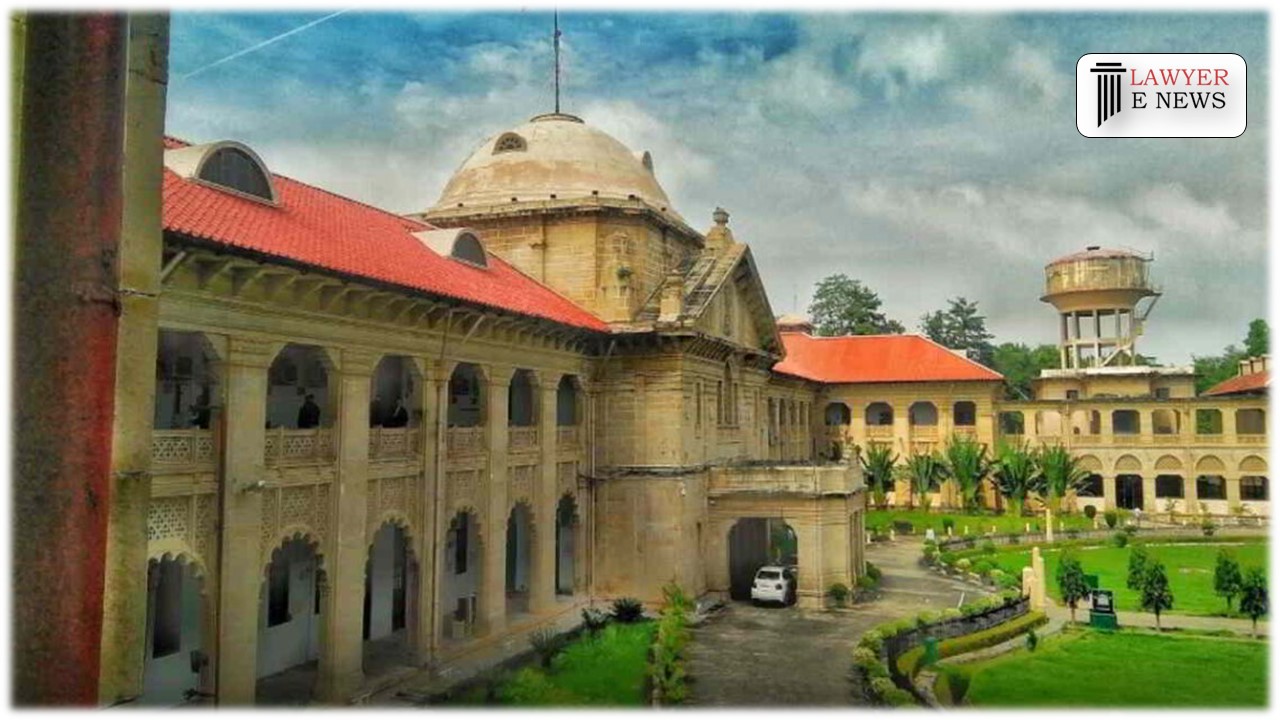-
by Admin
15 February 2026 2:36 AM



High Court emphasizes thorough investigation into fraud allegations against Senior Assistant Clerk Suresh Kumar Mishra.
In a significant ruling, the Allahabad High Court dismissed a writ petition seeking to quash an FIR against Suresh Kumar Mishra, a Senior Assistant Clerk, implicated in a massive fraud and forgery case. The bench, comprising Justices Siddharth and Vinod Diwakar, underscored the need for an extensive investigation into the allegations of fraudulent issuance of challan receipts, causing substantial losses to the government treasury.
The petitioner, Suresh Kumar Mishra, was implicated in an FIR registered on April 27, 2023, under sections 419, 420, 467, 468, 471, and 120B of the IPC. The allegations involved Mishra, in collusion with ARTO officials, fraudulently issuing challan receipts for vehicle releases. Mishra, who worked in the Court of Chief Judicial Magistrate, Sonebhadra, was accused of releasing 304 vehicles against forged receipts, resulting in significant financial losses to the government. Despite being exonerated in a departmental inquiry, Mishra sought the quashing of the FIR on grounds of malicious prosecution and lack of incriminating evidence.
The Court emphasized the distinction between departmental exoneration and criminal proceedings, stating, “Exoneration in a departmental inquiry does not preclude criminal proceedings. Different standards of proof apply in disciplinary and criminal matters.” The Court noted the ongoing investigation had revealed substantial evidence against Mishra and other co-accused, necessitating a comprehensive investigation.
Justice Vinod Diwakar highlighted the detailed accusations against Mishra and his associates, stating, “The roles of multiple individuals have surfaced, including the petitioner, who appears to be the central figure in executing the fraud. The investigation has brought to light significant financial transactions and fraudulent activities involving government records.”
The judgment extensively discussed the legal framework for distinguishing between departmental and criminal inquiries. It reiterated that the criminal investigation must proceed independently of departmental findings. “The material collected during the investigation justifies the registration of the FIR and the ongoing investigation,” the Court asserted, referencing the Supreme Court’s decision in State of Haryana v. Bhajan Lal.
Justice Vinod Diwakar remarked, “Such a large-scale organized fraud cannot be executed without the active connivance of officials. The investigation must be thorough and unbiased, involving scientific and forensic assistance in evidence collection.”
The Allahabad High Court’s decision to dismiss the writ petition and uphold the ongoing investigation underscores the judiciary’s commitment to addressing serious allegations of fraud and forgery. By emphasizing the need for a thorough and impartial investigation, the Court aims to uphold the integrity of the judicial process and deter similar fraudulent activities in the future. The judgment highlights the critical distinction between departmental exoneration and criminal liability, reinforcing the legal framework for prosecuting government officials involved in fraudulent activities.
Date of Decision: 7th May 2024
Suresh Kumar Mishra vs. State of UP and 2 Others
